American soldiers' rescue mission supported with technology developed by „Beta Via”
Beta via @ 2025-04-09
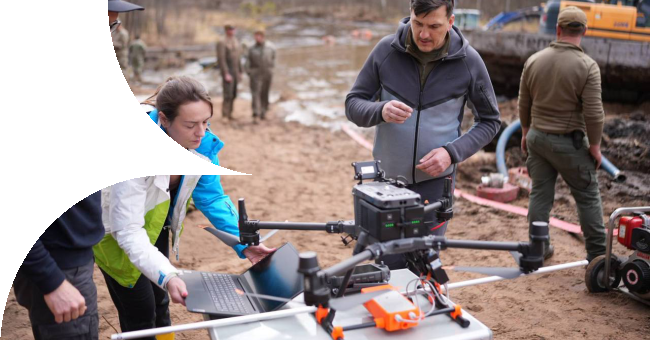
Over the past week, Lithuania has been focused on the devastating disaster in Pabradė. Not only Lithuanian and allied troops but also Lithuanian businesses contributed to the search and rescue operation of missing US soldiers. Among those who offered to help and had the opportunity to contribute was the „Beta Via“ team with its innovative artificial intelligence- based peatland exploration equipment.
„For several years now, we have been working steadily on developing AI-based algorithms that enable drones with special equipment to explore peatlands and wetlands. The developed solution allows us to fly at low altitudes to survey wetlands and peatlands. The data is analyzed by an algorithm that already requires little human assistance. Although the system was not designed for military search and rescue operations, we decided to offer our solution to the armed forces because the area where the accident occurred is exactly the kind of terrain our system is designed for," says Linas Didžiulevičius, project manager of „Beta Via“.
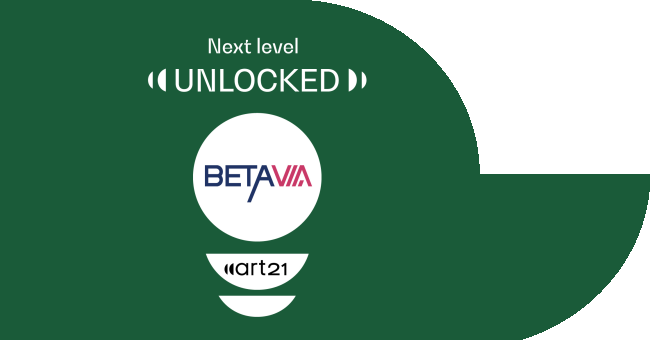
We are proud to share a significant milestone in our journey — UAB "ART21" is now UAB "BETA VIA".
This change is more than a new name. It marks the beginning of a new chapter — one that reflects our evolution as a company, the maturity we’ve gained, and the vision we continue to pursue. The name "BETA VIA" carries a deeper meaning: it symbolizes progress, transition, and purposeful movement toward greater efficiency and impact. It represents a step upward — a metaphorical ascent — as we continue to grow, innovate, and refine the way we create value.
Lithuania takes on European challenge of rural connectivity gaps with 5G technology, advancing ForestTech
Beta via @ 2024-01-25
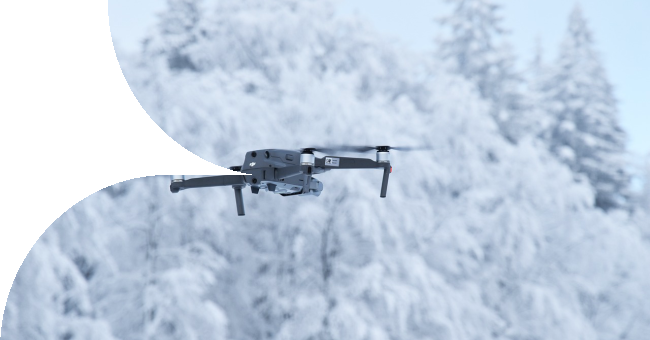
According to the EC, forests cover 45% of European land, and 25% of the population depends on them for their well-being, including income. Moreover, 80% of the EU territory is rural, where 30% of the people live, but many of them are still lacking opportunities due to technology gaps. Lithuanians participating in the international project XGain test a 5G-based innovation that would not only bridge the digital gap between urban and remote areas but also contribute to the untapped potential of the ForestTech sector.
Cutting-edge connectivity would expand the use of drones
The XGain partners have set themselves the ambitious goal of closing the digital gap between urban, rural, and coastal regions in at least 12 countries. Lithuania is focusing on the use of the latest generation of 5G connectivity to create a solution for monitoring forests and evaluating certain properties (fire risk, pest infestation, drought-affected areas, etc.).

While a minority of the population, fearful of progress, are measuring foil helmets to protect themselves from 5G connectivity, innovators from around the world are developing technology for rural areas, outpacing the development of future communications infrastructure. Although we usually listen to debates on TV about the possibilities offered by 5G communication, such as driving autonomous cars, etc., we rarely think that this extremely high-speed Internet connection will significantly impact regional areas and the entire food value chain.
The digital gap is holding back the economy
We have all encountered a situation when, after going to a remote region, we involuntarily get nervous while looking at the phone screen because the weaker Internet connection cannot ensure the average speed of information transmission. Lower data transfer speed significantly impacts the creation of innovation ecosystems, business development, and the establishment of start-ups. According to experts of the international initiative "XGain," a closer examination of the situation in various rural and coastal areas in Europe can identify the digital gap between these areas and cities. Low speed of connection is a multilateral problem that hinders the economic development of individual countries and the EU.

The preservation of forests is becoming an acute problem in the world. Every summer, we hear about terrible wildfires raging worldwide from the coasts of California and Australia. The statistics show merciless numbers - during the last decade in North America, an average of about 18,000 fire accidents occurred annually (this year, the number is approaching 57 thousand), which destroyed almost three million hectares of forests and bushes in 2020. In Australia, 33 million hectares were burned.
With the onset of drought, many wait anxiously for the next wildfire to break out. In addition, native and invasive insects, which can destroy entire forests, contribute significantly to the health of trees. We can be happy that advanced solutions are starting to appear on the market that could help solve these challenges.

How do technologies developed for the agrifood sector contribute to security?
Beta via @ 2022-12-27
Advanced technologies developed in one sector have long transcended the boundaries of their discipline and can often be applied on a much wider scale. What is particularly important in these uncertain and turbulent times, they can even significantly contribute to society's social, infrastructural and physical security.
At the end of last autumn, an example of the application of technologies developed by the agrifood tech innovation house "Beta via" in pharmacy was widely communicated in Lithuania. The company, using its knowledge on how to predict plant diseases at an especially early stage with the help of technologies, started developing a unique system for predicting the evolutionary development of the SARS-CoV-2 genome based on artificial intelligence and mathematical modeling technologies, and achieved promising results. Simply put, agrifood innovators have applied their expertise to the development of a mutation prediction system for the COVID-19 virus.
The benefits of agrifood technologies: real or fictional? An international study will clarify.
Beta via @ 2022-12-27
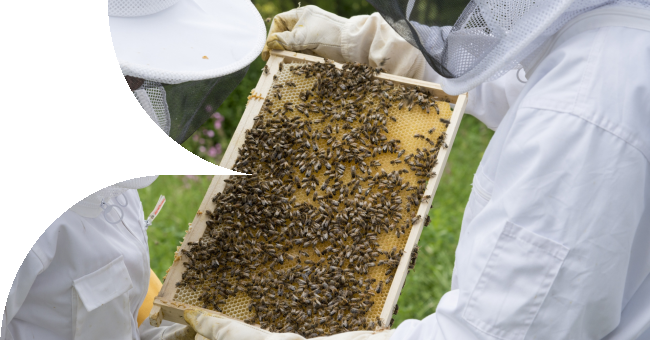
"Agriculture is the most traditional and conservative sector in the world" is a phrase heard almost every day. However, this time the text will not be about the reasons for this. We are often convinced of what we cannot substantiate, right? So, why should we be surprised that the owner of a farm handed down from generation to generation does not want to change and invest in changes? After all, the advanced digital technologies offered to farmers are often developed by innovators who have yet to set foot on a real farm, which often leads to a reasonable gap in mutual trust.
After all, when buying vegetables, we would prefer to choose tomatoes grown in the village rather than in some apartment building in Šeškinė. Nevertheless, Urban Farming will receive more and more attention soon. Although it is hard to believe, a vegetable grown in an apartment building in the capital's district can be more organic and nutritious than the one that grew at grandma's garden in the village.

Applications are now open for a 10-day Post-Harvest school program that will focus on regenerative agriculture and its impact on food production systems
On November 2-11, the Post-Harvest School will host a 10-day online educational programme for those who are interested in addressing the current challenges of regenerative agriculture. The school is ideal for students, industry representatives, young professionals, food retailers, farmers, and practitioners from the agrifood chain who wish to incorporate sustainability in their activities. Entrepreneurs interested in innovating in the food system and in improving the well-being of the population by providing them with safer and healthier products are very welcome too.
FlexiGroBots is successfully building an innovative platform to help farmers
Beta via @ 2022-08-20

FlexiGroBots project, coordinated by the Research and Innovation hub of the Atos Group in Spain and participated by Beta via, has officially completed its first half and achieved promising results focused on the development of a novel open artificial intelligence (AI) platform for building heterogeneous multi-robot systems, as well as inference and data services, which are all being validated in three real-life pilots of significant economic value: grapevines (Spain), rapeseed (Finland) and blueberries (Serbia and Lithuania). Several blueberry and grapevine field tests using ground robots and drones have already been performed successfully, while rapeseed pilot sites in Northern Europe are now ready for the first outdoor trials. All three pilots will mark the second summer of the project with more data collection and validation.
In order to produce solutions that the industry actually needs, collaboration with farmers, robot operators, and consortium partners has been established and information was collected using questionnaires to carefully define a list of functional and non-functional requirements and determine appropriate reference architecture. These requirements follow the General Data Protection Regulation (GDPR) and Ethical, Legal and Socio-Economic (ELSE) principles to ensure portability, interoperability and standardisation. Furthermore, to ensure scalability over multiple use cases and robotic platforms, which is one of the main tasks of the project, the FlexiGroBots platform was designed.

Together with partners Beta via is developing the technology to authenticate vegan, halal and kosher food
Beta via @ 2022-04-07
Each of us has faced a situation when after ordering the desired product we later realised that we had not received what we expected. Such cases undoubtedly undermine our confidence in traders and create a suspicious atmosphere in society. Although it is hard to believe, the global food fraud market is estimated at 15 billion US dollars, and complex food supply chains make the food sector even more vulnerable. This affects vegans and those who eat only Halal or Kosher food because of their religious beliefs the most, as these groups are highly vulnerable in the context of food fraud.
Solution – end-user friendly DNA analysis system
The EIT Food EthiChain project is an initiative to develop innovative DNA analysis systems that, in a fast and portable way, will make it possible to verify the authenticity of food products aimed at communities with certain ethical or religious requirements such as vegan, halal and kosher. These types of products, characterized by the need to control all stages of the supply chain, require exhaustive monitoring to ensure consumer confidence through more transparent production. EIT Food is the world's largest Agrifood Innovation Ecosystem supported by the European Institute of Innovation and Technology (EIT).
Beta via Stands with Ukraine Now and is Ready to Provide a Million-Dollar Support Package for Ukraine’s Reconstruction After the War
Beta via @ 2022-03-09

The agri-food innovation house Beta via takes care of the Ukrainian people who are now fighting for freedom of the whole Europe. A Lithuanian high-tech company is financially supporting Ukraine during the war and is ready to employ Ukrainians and cover their accommodation costs. In addition, after the war, the company will provide a package of strategically important high-tech services for over €1,000,000 to the objects of extreme importance to the Ukrainian economy. In this way, the company will contribute to the reconstruction and modernisation of the Ukrainian agricultural and food sector, as well as its supply chain.
Ready to recruit and accommodate Ukrainians
Beta via understands the situation of Ukrainians who were forced to leave their homes. Thus, it is ready to employ at least 20 war refugees from Ukraine under competitive market conditions and pay extra for the rent of their apartments in the capital city. ‘Today, Ukraine is fighting not only for itself but also for all of us against the Russian Federation, which is using unjustified aggression. I believe that we must support the Ukrainian people in all possible ways. As a socially responsible business, we want to contribute to providing care and dignified living conditions for people who were forced to leave their homes,’ said Augustas Alešiūnas, CEO of Beta via.

If we said that bees are essential to human life, we would not lie. They are one of the most efficient plant pollinators, with an annual contribution to crop productivity of 147 million euros. However, concerns about the extinction of bee colonies have been growing over the past few decades. This is why we together with partners have decided to take action and develop a beehive protection and monitoring system, which would increase the efficiency of bees, reduce the number of their deaths, contribute to more sustainable financial planning and alert the farmer about the formation of a swarm.
HOW DOES IT WORK?
The efficiency of the software will be ensured by a user-friendly installation infrastructure and system usage environment. Autonomous sensor devices installed in the hive will continuously measure the temperature, humidity and acoustic signals of the hive. The data will be transmitted to a central server, processed by advanced algorithms and presented to the farmer in an understandable and attractive form.
Promising First Results: The Application Developed by Lithuanians will Predict COVID-19 Mutations in the Future
Beta via @ 2021-11-05

The digital innovation house Beta via has taken up an ambitious project in response to the constant emergence of new mutations in coronavirus - to develop a unique system for predicting the evolution of the SARS-CoV-2 genome based on artificial intelligence and mathematical modelling technologies. In this way, the technology developed by Lithuanians will be able to predict the course and tends of modification in the genome of this virus by using the data collected in databases. The ‘learning’ phase of the system has just ended with satisfying results - the accuracy is as high as 99%. If the results of the second technology development remain at least 80%, Lithuania will be proud of the development of advanced technology to fight the COVID-19 virus.
‘The technology we are developing will allow us to control the dynamics of pandemic development more efficiently. Based on the results obtained, test and vaccine developers will be able to make adjustments in their production and avoid loss of efficacy due to new mutations in the viral genome. It is particularly relevant in the test production process. For example, a person may get coronavirus and carry it because tests will not be able to detect it and will give false negative results. Therefore, this technology based on artificial intelligence and big data is especially relevant until the virus is completely controlled. In addition, it is an excellent example of enabling open data in the development of advanced solutions, even in such complex processes as disease prevention,’ said Augustas Alešiūnas, the founder and director of the innovation company Beta via.

The agrifood tech innovation house Beta via became the silver partner of EIT FOOD, the leading food innovation initiative in the European Union. This is really impressive, as Beta via became a full member of EIT FOOD just a few years ago. It is the smallest member of this organization and the only company with such status in the Baltic States. Other members of this organization include such well-known names as Siemens, Pepsico, Nestle, John Deere, the University of Cambridge and many others.
"We are proud of our membership and growing status in the EIT FOOD community. This is a great acknowledgement, because you can only be a member of this community if other members see the value you create for Europe and its people. EIT FOOD is a place where like-minded people unanimously strive to create a more sustainable and innovative Europe and its agrifood sector," said Augustas Alešiūnas, the founder and CEO of Beta via.

The AgriFood Forum 2020 was a real surprise. The two-day forum, which was organized virtually for the first time, attracted more than 1,800 unique viewers, 500 of whom were participants from abroad. What is more, each participant spent an average of more than 4 hours on the forum. The AgriFood Lithuania DIH, the main organizer of the event, has a very clear mission for the AgriFood Forum 2021. According to the hub, it is time to turn ambitions into real actions and commonly agree on the implementation of the sustainable food supply chain. The hybrid AgriFood Forum 2021 will take place on 25th of November.
“The agri-food sector does not have its own separate concept and is therefore often treated as a separate part of Industry 4.0. However, in Lithuania this sector is rapidly transforming and even acquiring the features of Industry 5.0. In this context, the synergy between man and technology, combining the human mind and creativity with the efficiency of technology, becomes paramount. We must unite business and scientific efforts and both create a clear vision and mission of our country’s agri-food sector for the coming decades, and show its importance for Lithuania’s growth. This will not only create a sustainable and healthy environment, but will also attract large investments and encourage young people to take an interest in the field of agri-food and create value for Lithuania in the regions,” said one of the speakers of the AgriFood Forum 2021 Vytautas Magnus University Rector Juozas Augutis.

The Beta via-sponsored conference 'Digital Sea' attracted many cross-sectoral leaders
Beta via @ 2021-07-10
On a hot summer Thursday, a hybrid international conference “Digital Sea 2021” took place on the DFDS ferry Athena at the Klaipėda Central Seaport Terminal. Organized by the Digital Innovation Hub “AgriFood Lithuania DIH” and the European Union’s leading food innovation initiative “EIT Food”, the conference was the first event of this level and depth focusing on the challenges and digital opportunities at sea in the context of twin transition. The blue economy, its digitalization, “green” effects and sustainability have brought together a particularly wide range of leaders from cross-sectoral political, business, scientific and social organizations to speak, listen and seek common ground. As many as three ministries – the Ministry of the Environment; Transport and Communications; Energy – strategic state-owned enterprises, agencies and market-leading businesses took an active part in the conference.
At the beginning of the conference – the kick-off of “EDIH Lithuania.lt”
At the end of last year, a consortium has been established by eight leaders from different sectors in Lithuania. During the competition, it was recognized as the best and most in line with Lithuania’s interests in providing digital transformation services to business entities in the Central and Western Lithuania region and was nominated by the Ministry of Economics and Innovation to the European Commission to become the European Digital Innovation Hub. During the conference, the official start of “EDIH Lithuania.lt” took place.
The winners of the Beta via-supported hackathon 'HACK DigitalSea 21' have been announced
Beta via @ 2021-07-07
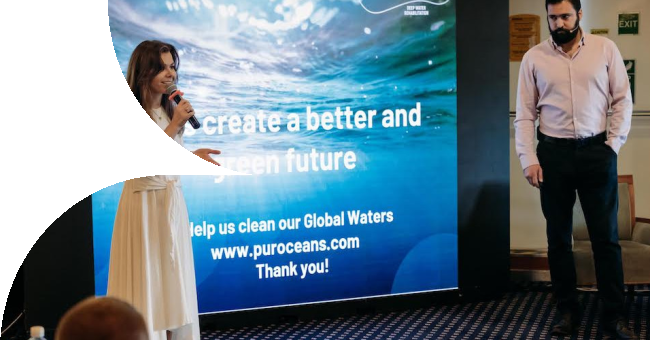
The solutions were evaluated by an international jury, which selected the winners in three categories: the most advanced solution, the strongest idea, and from zero to hero that showed progress from the idea stage to a prototype during the hackathon. The winners of each category were awarded a cash prize of 4000 EUR.
The Latvian team PureOceans won in the category “The most advanced solution”, with their technology solution that cleans rivers and seabeds from 98% of oil and microplastic pollution. Team leader Alona Stepanenko emphasizes the team’s participation in the hackathon: “Participation in this event was one of the best experiences we have ever had. The overall level of professionalism of the mentors was extremely high and all the ideas, thoughts and advice they shared were very valuable. We can thank them in advance for any future success we will have.”
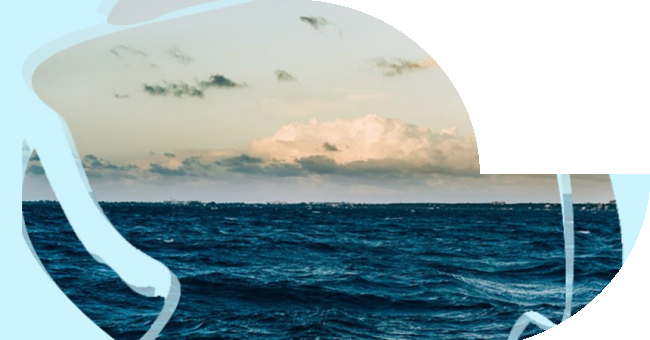
The Beta via-sponsored conference 'Digital Sea' will strive to set a vision of the blue economy in Lithuania
Beta via @ 2021-07-02
The importance of the blue economy is growing in the European Union: its contribution to the national budgets is increasing, the number of jobs created is growing, and the importance of sustainable aquaculture for nature, people and their food chain is becoming increasingly clear. In addition, the blue energy from the sea represents a huge unrealised potential for energy that will in the near future attract a large amount of investment, generate significant economic returns for society, help protect the environment and strengthen energy independence. The political and business leaders will discuss effective digital solutions to enable Lithuania’s blue economy at the Digital Sea Conference on the 8th of July. Participation in the conference is free of charge, but pre-registration is required due to the limited number of people who can join.
The Topic Is Relevant Throughout Europe
This will be the first ever exclusive top-level international conference in Lithuania on the challenges and digital opportunities at sea in the context of the twin transition. In addition, this conference is the only one in our country and one of the few events in Central and Northern Europe to have been awarded the right to be part of the European Commission’s initiative “European Maritime Day”. According to the event organisers AgriFood Lithuania DIH, this conference is an excellent opportunity for Lithuania to take stock of the challenges, resources and opportunities available in the Baltic Sea and to send a clear message to the public, businesses and decision makers across Europe.
Beta via will contribute to the first joint Digital Sea hackathon in the Baltic States
Beta via @ 2021-06-15

The three EIT FOOD hubs of the Baltic States — AgriFood Lithuania DIH, Riga Technical University and Tartu Biotechnology Park — are coming together for the first time ever for the exceptional international online hackathon HACK DigitalSea’21, which was initiated by the Lithuanian Digital Innovation Hub.
The organisers are inviting both students, who are still seeking ideas, and experienced start-ups to compete in a variety of categories for winnings from a 12,000-euro prize fund. Registration for the hackathon has already begun and will be open until June 27. HACK DigitalSea’21 will be held on July 3-4.

Augustas Alešiūnas: The digitalisation of the agri-food sector – is it a new bubble?
Beta via @ 2021-02-04
COVID-19 is changing the rules and creating a new reality that could collapse after the pandemic. It might turn out that some decisions have been made arbitrarily or spontaneously and the market will simply reject them.
As a result, venture capital funds, investors, and business angels could lose a lot of money, which would very likely affect our collective economy. However, like every bubble in history, it would also leave behind some very positive consequences for our future. For example, there was a time when the internet was talked about by everyone from taxi drivers to the Queen, although most of those who talked about it didn’t even use it.
Europe's eyes are on Lithuania: the International AgriFood Forum 2020 is being organized
Beta via @ 2020-11-23
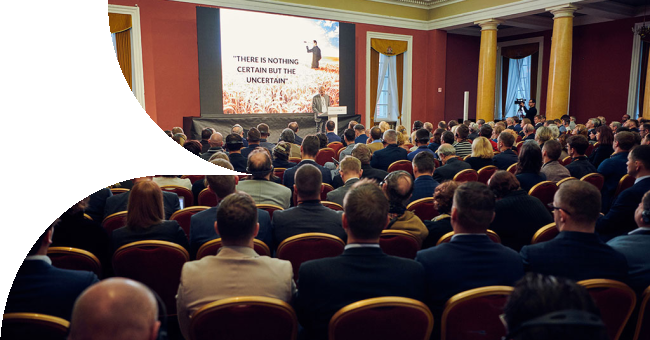
Agriculture is approaching the breaking point: the European Green Deal, the reform of the Common Agricultural Policy, the ongoing process of digitalization and the world’s response to the COVID-19 pandemic crisis will fundamentally change the perception of productivity, sustainability and technology in the agri-food industry. The main trends in the sector will be discussed in detail at the International AgriFood Forum 2020, which will take place remotely on 26-27 November. The event is designed for business, decision makers, farmers and anyone interested in the prospects in this area. Participation in the forum is free of charge, but due to the limited number of people who can join, pre-registration is required.
The organizers of the event – the AgriFood Lithuania DIH and the European Parliament (EP) Liaison Office in Lithuania – emphasize that decisions made today will determine the long-term future of agricultural and food industry. "At the end of October, the European Parliament voted in favor of making the agricultural policy of the EU more flexible, sustainable and resilient to crises. MEPs will seek to ensure that a significant proportion of support is dedicated to combating climate change and ensuring biodiversity. In the past, The European Parliament has advocated solutions that reduce the use of fertilizers and antibiotics in food the production and shorten the food supply chain. In the near future, the funds of the Economic Recovery Fund should reach Europe. These funds can become the basis for the transformation towards a more sustainable agriculture and food production,” Daiva Jakaitė, the Head of the EP Liaison Office in Lithuania, explained.

Registration for the Beta via-supported on-line regional hackathon HACK AgriFood’20 has started
Beta via @ 2020-11-01
AgriFood Lithuania DIH, together with international partners, has announced the beginning of registration for the regional online two-day hackathon HACK AgriFood’20, which will take place on November 21-22, 2020. Participants will be able to choose from 18 unique challenges, divided into 6 different categories, that the agri-food sector is facing today.
During the two-day hackathon innovators from Lithuania and neighboring countries will:
• get mentorship and guidance from experts at the top of their fields;
• have the opportunity to pitch their ideas during the international AgriFood Forum 2020;
• compete for a solid cash prize;
• be invited to participate in unique interactive entertainments.
Beta via became a partner of the exclusive international agri-food innovation hackathon
Beta via @ 2020-07-15
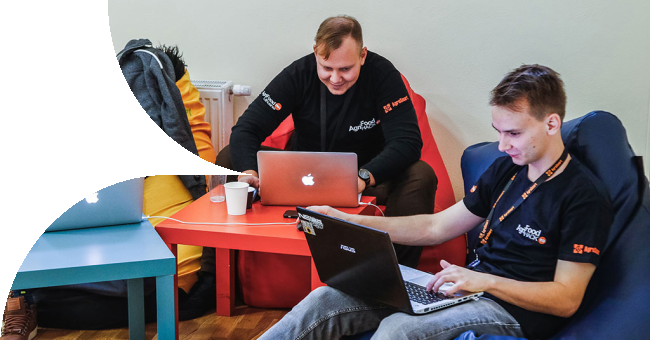
For the first time in history, a 2-month online international hackathon HACK AgriFood’20 is being organized. HACK AgriFood’20 is aimed at helping the agriculture and food sectors to overcome ongoing problems and to address the challenges posed by the COVID-19 crisis. After the hackathon, its participants will be able to sell their MVP stage targeted solutions to the challenge owners – AgriFood sector companies. Currently, different companies from all over Europe have already submitted nine challenges in four main categories: Local Food Supply Networks, Utilizing Production Side-Streams, Smart Food Packaging and Solving Last Mile Delivery.
When asked to express his opinion about HACK AgriFood’20 and its prospects, one of the pioneers in the European Digital Innovation Hubs ecosystem and internationally recognized agri-food expert, Grigoris Chatzikostas, said that COVID-19 tested the resilience of our food systems but it also accelerated the adoption of game-changing technologies. HACK AgriFood’20 is a co-creation space where startups, farmers and food producers can come up with practical solutions for tackling major challenges imposed by the pandemic. It gives the Lithuanian and European ecosystem a push to move faster, without leaving anyone behind, in order to emerge stronger from the crisis.

Lithuanians are developing a technology that can change the European oyster market
Beta via @ 2020-08-06
Lithuanians are developing an artificial intelligence-based technology that can change the established order of the European oyster market. This innovation will ensure a comprehensive, accurate and efficient assessment of oyster quality parameters, which is not yet possible due to the lack of technological supply and limited laboratory testing for oyster suppliers.
"Our goal is to create a technology that would allow all members in the oyster supply chain to not only determine the nutritional properties of the oysters they have, but to also prevent them from serving any that are saturated with heavy metals or infected with bacteria and viruses. These are the main reasons why people get sick, as it is often mistakenly thought that only expired oysters are poisonous," Augustas Alešiūnas, the founder and leader of Beta via, explained. Recently, the company was chosen as one of the top Lithuanian startups by Sifted, the Financial Times backed voice of European tech.

The innovative hyperspectral data analysis technology developed by Beta via that aims to promote sustainable agriculture has won the 'New Enlightener 2020' contest in the category of Environment and green energy and will represent Lithuania in the world contest of digital content solutions World Summit Awards 2020.
"We are proud of this recognition, because it gives us the possibility to represent Lithuania in the world contest WSA 2020. We do believe that this advanced technology will significantly reduce the amount of pesticides used in agriculture and will help the European farmers achieve the goals set in European Commission's Green Deal initiative, ” Augustas Alešiūnas, the founder and leader of Beta via, explained after receiving the award.

We are pleased to announce the signing of a long-term cooperation agreement with a new business partner - an exceptional Croatian oyster farm "Platforma Aqua".
In the last decade "Platforma Aqua" was the first oyster farm in the Šibenik-Knin region to hire support staff. This is not surprising since it is as big as 8 regular oyster farms and produces 400 tons of molluscs per year. We are happy that our new business partners see oyster farming as a business project that can generate significant financial returns. This is very unusual in Croatia, where family-owned oyster farms dominate. A traditional oyster farm here is run by one or a few family members generation after generation and produces 50 tons of oysters (8 times less than "Platforma Aqua").

The AgriFood innovation house Beta via was chosen as one of top Lithuanian startups by Sifted, the Financial Times backed voice of European tech.
“This acknowledgement was not expected, but it is very pleasant. This shows that experts in advanced technologies from all over the world believe in the value we create. It is also a very motivating recognition for our employees. I have no doubt that in the next few years we will achieve a huge breakthrough in the digitalization of the agrifood sector both in Lithuania and abroad” said Augustas Alešiūnas, the founder and CEO of Beta via, after finding out about the acknowledgement.